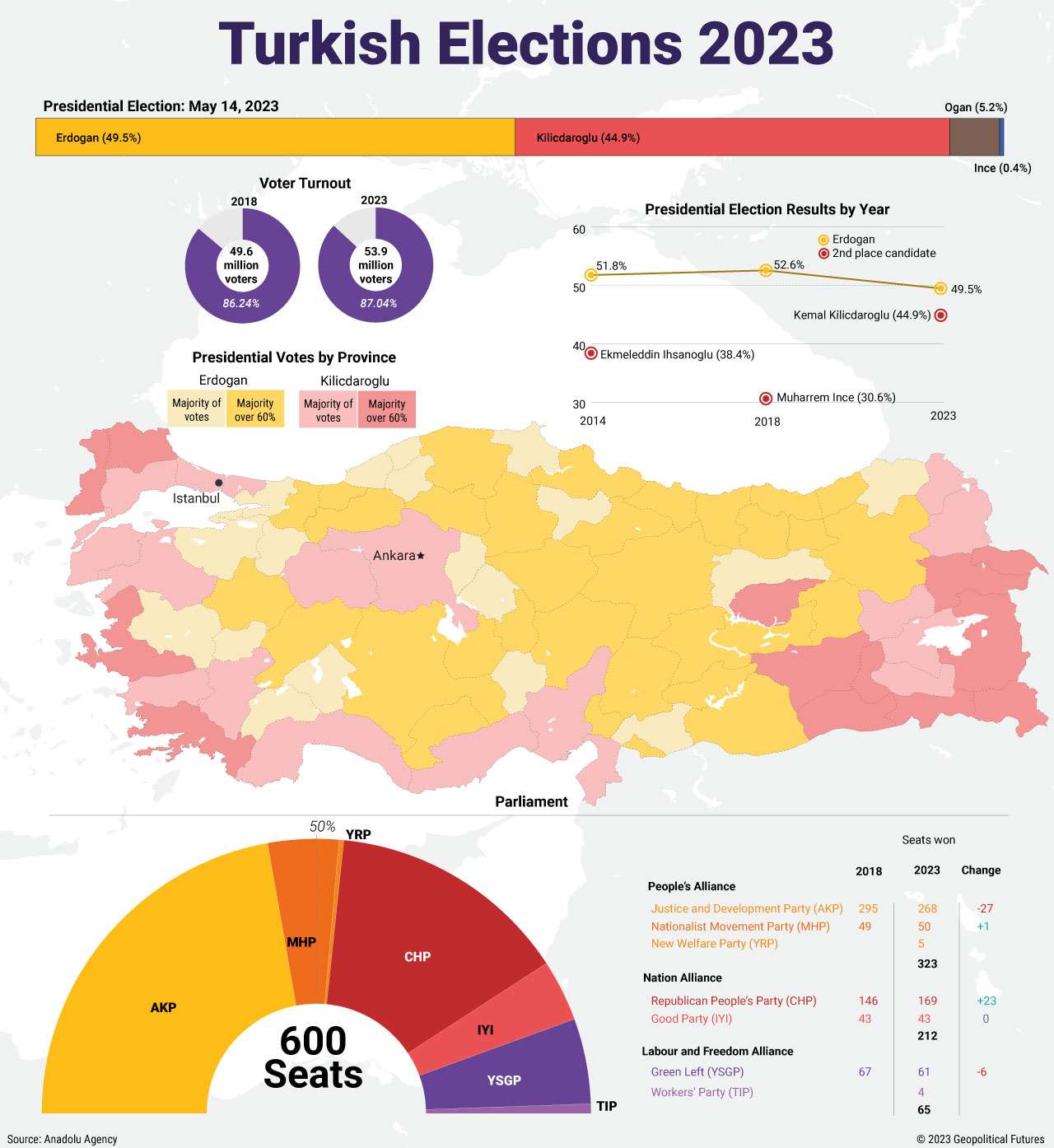Turkish voters are heading to the polls on Sunday for a runoff election. It comes after no presidential candidate managed to win at least 50 percent in the first round vote just two weeks ago. The incumbent president, Recep Tayyip Erdogan, is now facing off against Kemal Kilicdaroglu, the leader of the main opposition bloc. Though Erdogan won a larger share of the vote in the first round, Kilicdaroglu enjoyed the support of a broad voter base that included the coastal regions, major cities like Istanbul and Ankara, and heavily Kurdish-populated areas.
With a large economy and advantageous geographic position, Turkey is a key regional player and hub between Europe and Asia. Its relevance has only grown in the past year amid rising tensions between Russia and the West, a conflict in which Ankara has managed to balance between both sides. It has positioned itself as a link connecting rival economies – as a supplier of both Russian resources to Europe and high-tech goods to Moscow – and a mediator in the critical Black Sea grain deal. In this election, then, the main issue hanging in the balance is the future of Turkish foreign policy. Kilicdaroglu has promised to join Western sanctions against Russia and expel all Syrian refugees living in Turkey, which could cause friction with the country’s neighbors. It should be kept in mind, however, that these pledges were made with the goal of winning over a certain segment of voters. With the country’s economy on shaky ground, especially amid soaring inflation rates, the winning candidate won’t want to do anything that could increase anti-government frustration.







